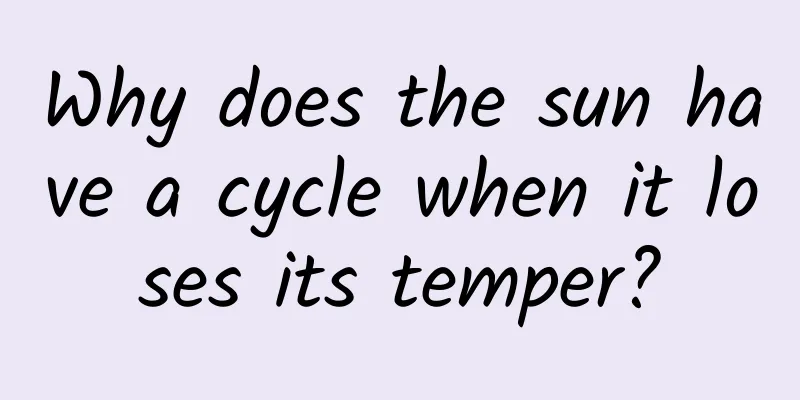Why does winter make people want to fall in love?

|
© unsplash Leviathan Press: A few months ago, Match.com CEO Hesam Hosseini said in an interview: "We expect this fall to usher in the biggest cuffing season in history." "Cuffing" originally means "putting on handcuffs." This saying is a metaphor for singles who want to keep both body and mind warm in the winter and get rid of loneliness and sadness. They begin to desire to be "bound" by a relationship and spend the coldest months with their partner, so it is sometimes translated as the single season and the love season. But is there really a "cuddle season"? Does cold weather really make us more romantically inclined? Is this a physiological phenomenon that applies to all of us, or is it just another urban legend that exists only on social media and in speculation? © unsplash As a dating website that provides online matching services in more than 50 countries around the world, Match firmly believes in the existence of "Hug Season". Not only that, by analyzing more than 20 years of user data, they found that the annual cuffing season roughly lasts from November 1 to February 14 of the following year, with January 7 being the most "cuffing" day - at this time, the hangover of the Western New Year is almost dissipated, and the cruel Valentine's Day is about to approach. In this regard, Dr. Marisa T. Cohen, a New York interpersonal relationship researcher, frankly stated that there is little evidence to support the existence of "cuddle season". "It is difficult to find traces of this term in academic journals." But that doesn’t mean cuffing season is a myth. In a 2013 study, researchers analyzed the frequency of online searches for sex and romance-related keywords over a five-year period and found clear and predictable seasonal fluctuations—with peaks occurring every six months. (pubmed.ncbi.nlm.nih.gov/22810997/) In winter (especially January), online dating services see a significant increase in search popularity. And every July there is another peak in searches that is no less significant, which shows that cuddle season is not only real, but it also comes twice a year. Even the search popularity of the term "cuffing season" itself will increase with the arrival of winter. © google trends By the way, keywords related to erectile dysfunction are also searched more frequently in winter. It is not clear whether this is because the incidence rate increases in winter or because the cold outdoor environment makes people pay more attention to sexual health. (pubmed.ncbi.nlm.nih.gov/33574574/) On the other hand, Facebook made a different discovery in 2012: by analyzing users' status tags, they learned that around Valentine's Day and Christmas, "there are far more people who are no longer single than those who are single again." The summer months are more "bad news about relationships," regardless of age. (www.facebook.com/notes/facebook-data-team/the-right-time-for-love-tracking-the-seasonality-of-relationship-formation/10150643989093859) Winter does seem to encourage singles to fall in love, but what about couples? They are obviously not the main contributors to the popularity of those keywords - but judging from the data, couples are obviously not idle in the cold winter. According to the fifth and sixth population census data in my country, the birth rate in November and December is much higher than that in other months. According to the ten-month pregnancy period, it is not difficult to find that the cold January and February are the peak periods for pregnancy, which is also the Spring Festival. (www.stats.gov.cn/tjsj/pcsj/rkpc/5rp/index.htm) (www.stats.gov.cn/tjsj/pcsj/rkpc/6rp/indexch.htm) The figure shows the monthly distribution of birth rates in the sixth census. Data from public data In contrast, data from the UK shows that the months with the highest birth rate are August and September, which means that their peak birth rate occurs during the Christmas period. (www.ons.gov.uk/peoplepopulationandcommunity/birthsdeathsandmarriages/livebirths/articles/howpopularisyourbirthday/2015-12-18) Therefore, we have reason to believe that the cold winter does make people yearn for love more. "Hug season" does exist. Although this is a seemingly ridiculous and unprovoked new word, it is also a kind of shorthand of the times that is difficult for us to describe specifically. Winter forces us to look inward. When we review what we have done in the past year and with whom we have done it, we often question the meaning of our lives and social connections, which can also prompt people to build more relationships with others. But we still have to ask: Why do lovers always meet in winter? * * * © unsplash "During the cold winter months, people are less motivated to leave their cozy homes and attend social gatherings," Dr. Cohen said. "Instead, people would rather spend time with someone at home." This may explain the increase in mating desire that occurs in the winter. On warm days, socializing is outward. We are always willing to step out of our own little world, go outside with friends, and face the world. On cold days, socializing is inward. The family sits around the dinner table, warm as usual. Life-long friendships may not be just friends you can meet without washing your hair, but may also be the tenderness of going out in the cold wind to meet each other. Whether it is Christmas in the West or the Spring Festival in China, these happy family festivals "happen" to appear in winter. This may be a coincidence, but it may also be because in the cold season, we prefer to be reunited with our families at home rather than running in the bone-chilling wind. This may be the reason why reunion festivals always occur in winter: in the cold weather, everyone wants to stay at home. What should you do when you are alone away from home? Maybe you will start to think about falling in love. © unsplash Unfortunately, while reuniting with family can undoubtedly deepen the bonds between relatives and promote family harmony, it also actually reduces the opportunities for single men and women to meet. People will think about what they lack. What's more, in family gatherings, aunts and uncles are always the protagonists. Not only will they deepen your loneliness by visiting with their husbands and children, but they will also urge you to find a partner by using their language skills such as asking questions and lobbying. Although they are worried about you, and although you say you are not worried, you may be more worried than anyone else in your heart. There will also be some social comparisons between cousins of the same age. For example, your cousin who is two years younger than you brought his girlfriend home for the New Year this year. In this situation, the yearning for love will become more concrete. © unsplash Forget it, let's go out. When you wrap yourself up in three layers and go out to the street, you find that the year-end promotions in shopping malls are all half-price for the second item, and the restaurant promotion is kiss for one minute and you can get a free boiled fish. Think about those Lunar New Year movies, which are either family-friendly or about happy marriages, with plots like "When the protagonist returns to his hometown for the New Year, he finally gets together with his junior high school crush." But we can’t blame the filmmakers for this. A 2012 study showed that feeling cold increases people’s “love for romantic films.” This is the power of embodied cognition—our physiological perception affects our thinking and feelings, and the business is just meeting the demand. (www.jstor.org/stable/10.1086/662613?seq=1#page_scan_tab_contents) I finally made it through the Spring Festival, but there are still three minutes left before Valentine's Day. We will find that people all over the world are very tacitly showing their love in the cold months, which makes it difficult for people who already yearn for love not to re-examine their single status with a critical eye. We can attribute our desire for love in winter to the influence of the social environment. When the warm atmosphere on the streets is constantly telling you that it is time to find a partner, your lonely heart will naturally yearn for an intimate relationship. But on the other hand, you may still wonder where this social tacit understanding comes from? How can a good winter be filled with the sour smell of love? This is the mystery of the human body. * * * © unsplash The expression of love may change rapidly, but people's desire for love is as old as the mountains. Scientists have long documented seasonal fluctuations in human courtship behavior, including a 2008 study from the University of Wroclaw in Poland that found that women were more physically attractive to men in the winter than at other times of the year. (journals.sagepub.com/doi/abs/10.1068/p5715) "From an evolutionary perspective, we do draw warmth from others to help us survive. It's like hibernation in animals," said Professor Cohen. But the study by the University of Wroclaw still doesn't explain why this happens. Fortunately, we seem to be able to find some answers in another study: Norwegian researchers found that men's testosterone peaks in October and November each year, while in June, testosterone levels are at their lowest throughout the year, with a difference of up to 31%. (pubmed.ncbi.nlm.nih.gov/12843149/) As an important male hormone, testosterone is the culprit behind 90% of male hair loss symptoms, but it is also the source of male secondary characteristics and sexual desire. In the cold winter, a small flame is secretly burning under the navel of men. Of course, women also have testosterone in their bodies, but that's another story. © unsplash However, Tristan Coopersmith, a registered psychotherapist in the United States, has a different explanation for the research conclusions of the University of Wroclaw. He believes that the reason why men are more attracted to women in winter is actually because the supply and demand relationship has changed - or more precisely, it is the illusion caused by the supply and demand relationship. Coopersmith believes that in the summer, more people are outdoors, so the "supply" of potential partners will appear higher. But when winter comes, fewer people are outdoors, and "because we are eager for partners, we are more willing to accept and take relationships seriously." Coopersmith doesn’t deny that hormones play a role. Unlike most other mammals, humans don’t have a specific mating season, but even so, our desire to mate and the emotional needs associated with it rise and fall due to seasonal changes in hormone levels in the body—not only as an internal barometer of singles’ desire for love, but also as a reason why social environments can cause external pressures. © unsplash In winter, the days get shorter and the nights get longer, and the few hours of sunlight seem weak. With the decrease in sunlight exposure, the level of serotonin in the human body will naturally decrease. This substance, which is considered by our old friend Helen Fisher, the chemistry expert who understands love best, to be the "love hormone", can bring a feeling of stability and peace, but the generally low serotonin levels in winter can make people feel low, depressed, tired, and irritable, and even worse, it can increase the possibility of seasonal affective disorder. (www.sciencedirect.com/science/article/abs/pii/S0140673602117375) Cohen explains that the low serotonin state in winter triggers people's desire to be with someone. When there is a warm body to cuddle with, we are not bothered by the mental and physical desire for interpersonal communication. The company of a loved one is undoubtedly one of the effective ways to improve mood levels in winter. Take oxytocin, another famous "love hormone." This hormone, secreted by the pituitary gland, is not only secreted in large quantities in breastfeeding mothers, but also in newly-formed couples. Oxytocin can in turn increase attraction between the two parties, enhance intimacy, and allow lovers to feel a strong connection with each other. What’s more interesting is that oxytocin is not only stimulated by love or family affection, but exercise can also stimulate the brain to secrete more oxytocin. An experiment conducted on male prairie voles showed that six weeks of wheel exercise can change the neural units in their brains related to oxytocin secretion. This will cause them to quickly become intimate with female voles. (www.ncbi.nlm.nih.gov/pmc/articles/PMC5308882/) More direct evidence came from a study of marathon runners: as early as 2008, researchers found that after completing a marathon, the level of oxytocin in the blood of long-distance runners was significantly higher than before the start of the race. (pubmed.ncbi.nlm.nih.gov/18794210/) The mood-enhancing power of exercise has long been proven. The authoritative journal The Lancet conducted a cross-sectional health study on 1.2 million people in the United States and found that exercise habits are more closely related to mental health than wealth. In other words, a person who maintains long-term exercise is more likely to have better mental health than a wealthy person. (www.thelancet.com/journals/lanpsy/article/PIIS2215-0366(18)30227-X/fulltext#seccestitle10) You can improve your mood in winter by building a close relationship, or you can gain warmth and vitality through exercise. Love is indeed a luxury in a sense, but exercise will never let you down. For some people, the cold of winter may stop them from exercising or drive them to the gym to get iron. But in fact, proper outdoor exercise in winter is beneficial to the body's functions. The low temperature environment can effectively improve exercise efficiency and help the body enhance immunity. By Chom Proofreading/Rabbit's Light Footsteps This article is based on the Creative Commons License (BY-NC) and is published by Chom on Leviathan The article only reflects the author's views and does not necessarily represent the position of Leviathan |
<<: It turns out you are such a "little axe"!
>>: How to make AI more "human"? MIT research: This is crucial
Recommend
How many sparks will occur when HTML5 meets Native?
A few days ago, there was a piece of news that at...
Taking advantage of the Valentine's Day poster, Durex is shining again!
February 14th, Valentine's Day has always bee...
New energy vehicle production capacity is overheated, 10 times the sales volume
New car-making forces have entered the mass produ...
Write your own Bayesian classifier to classify books
[[141939]] Background and Purpose First of all, t...
This Japanese car company withdrew from China due to poor sales, and domestic brands actually felt that they were in the same boat
On June 15, BAIC Changhe announced that the Japan...
It was very "sneaky" at night, but it came down in broad daylight...
Look carefully, it is in the picture~ During the ...
New gameplay | The banner style of the Super Fan Pass main page has been upgraded!
The marketing environment is changing rapidly and...
The Conversations feature in Android 11 may not be available on all devices
Android 11 will bring many features and improveme...
China's grain distribution map: How much grain do the three northeastern provinces produce each year?
China's grain distribution map Where are the ...
This highly poisonous plant feeds at least 800 million people. You must have eaten it.
A 17th-century natural history painting of cassav...
Honor Play 7X review: Full screen dual camera + full series 4G RAM to create the ultimate 1,000 yuan flagship
Many people may not have expected that Honor'...
iOS 16.4 will add new features that have been withdrawn
In the iOS 16.2 update, Apple intended to release...
All the methods and techniques to make money quickly on Zhihu are here!
I had just come into contact with Zhihu at this t...
Three steps to attract private e-commerce traffic
The essence of a private domain is to have long-t...
It's time to eat insects, oh no, it's time to eat bayberries
"In May, the forest is full of bayberries, a...









